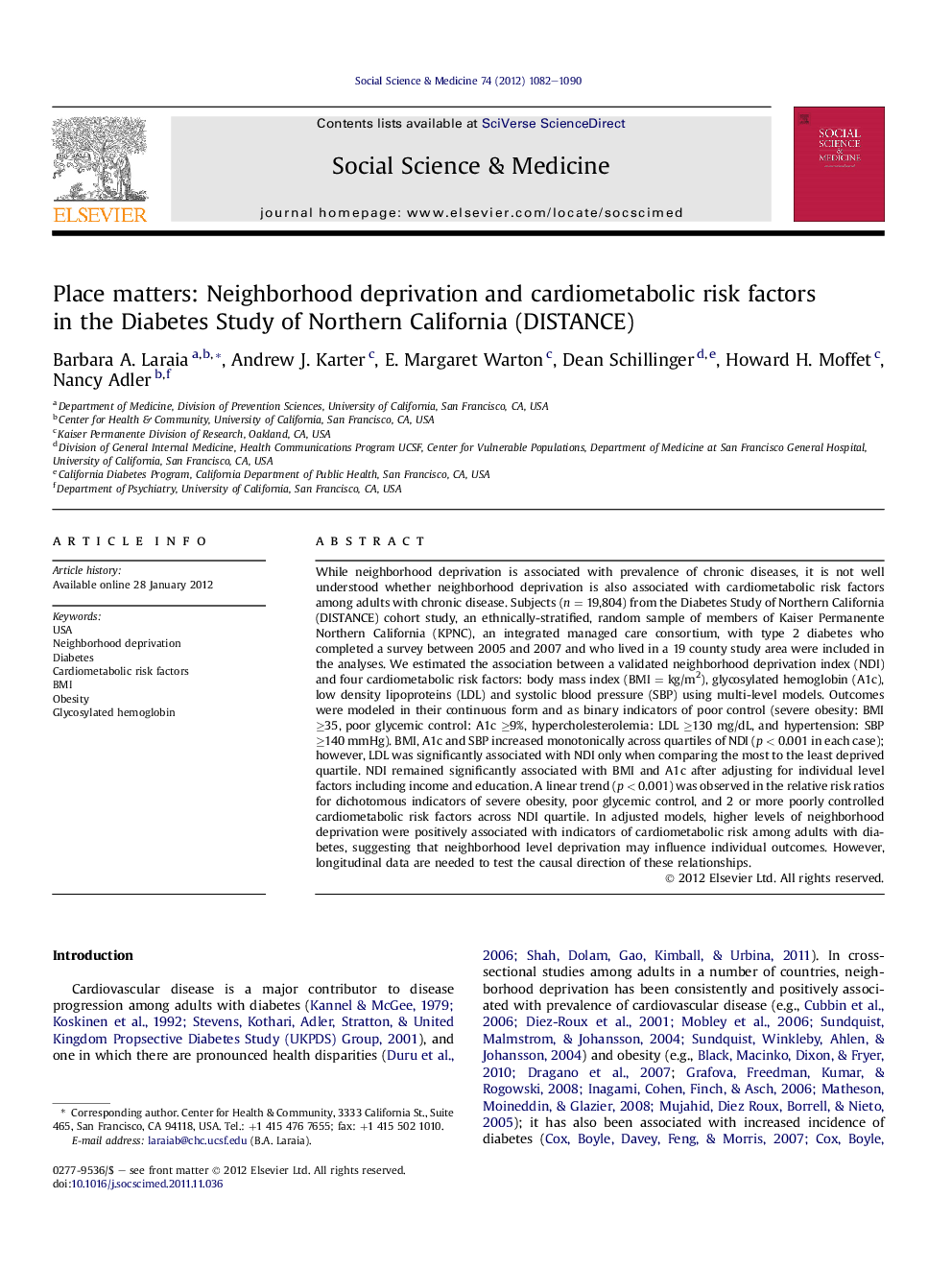| کد مقاله | کد نشریه | سال انتشار | مقاله انگلیسی | نسخه تمام متن |
|---|---|---|---|---|
| 952720 | 927534 | 2012 | 9 صفحه PDF | دانلود رایگان |

While neighborhood deprivation is associated with prevalence of chronic diseases, it is not well understood whether neighborhood deprivation is also associated with cardiometabolic risk factors among adults with chronic disease. Subjects (n = 19,804) from the Diabetes Study of Northern California (DISTANCE) cohort study, an ethnically-stratified, random sample of members of Kaiser Permanente Northern California (KPNC), an integrated managed care consortium, with type 2 diabetes who completed a survey between 2005 and 2007 and who lived in a 19 county study area were included in the analyses. We estimated the association between a validated neighborhood deprivation index (NDI) and four cardiometabolic risk factors: body mass index (BMI = kg/m2), glycosylated hemoglobin (A1c), low density lipoproteins (LDL) and systolic blood pressure (SBP) using multi-level models. Outcomes were modeled in their continuous form and as binary indicators of poor control (severe obesity: BMI ≥35, poor glycemic control: A1c ≥9%, hypercholesterolemia: LDL ≥130 mg/dL, and hypertension: SBP ≥140 mmHg). BMI, A1c and SBP increased monotonically across quartiles of NDI (p < 0.001 in each case); however, LDL was significantly associated with NDI only when comparing the most to the least deprived quartile. NDI remained significantly associated with BMI and A1c after adjusting for individual level factors including income and education. A linear trend (p < 0.001) was observed in the relative risk ratios for dichotomous indicators of severe obesity, poor glycemic control, and 2 or more poorly controlled cardiometabolic risk factors across NDI quartile. In adjusted models, higher levels of neighborhood deprivation were positively associated with indicators of cardiometabolic risk among adults with diabetes, suggesting that neighborhood level deprivation may influence individual outcomes. However, longitudinal data are needed to test the causal direction of these relationships.
► Neighborhood deprivation index (NDI) was associated with poor risk factor control among adults with diabetes in managed care.
► NDI quartiles were associated with higher levels of body mass index (BMI) and glycosylated hemoglobin (A1c) after adjustment.
► NDI quartiles were also associated with a greater percentage of severe obesity (BMI ≥ 35), poor glycemic control (A1c ≥ 9%).
► Furthermore, NDI quartiles were associated with having two or more poorly controlled cardiometabolic risk factors.
► Living in a deprived neighborhood may accelerate the progression of existing disease and lead to poorer health outcomes.
Journal: Social Science & Medicine - Volume 74, Issue 7, April 2012, Pages 1082–1090